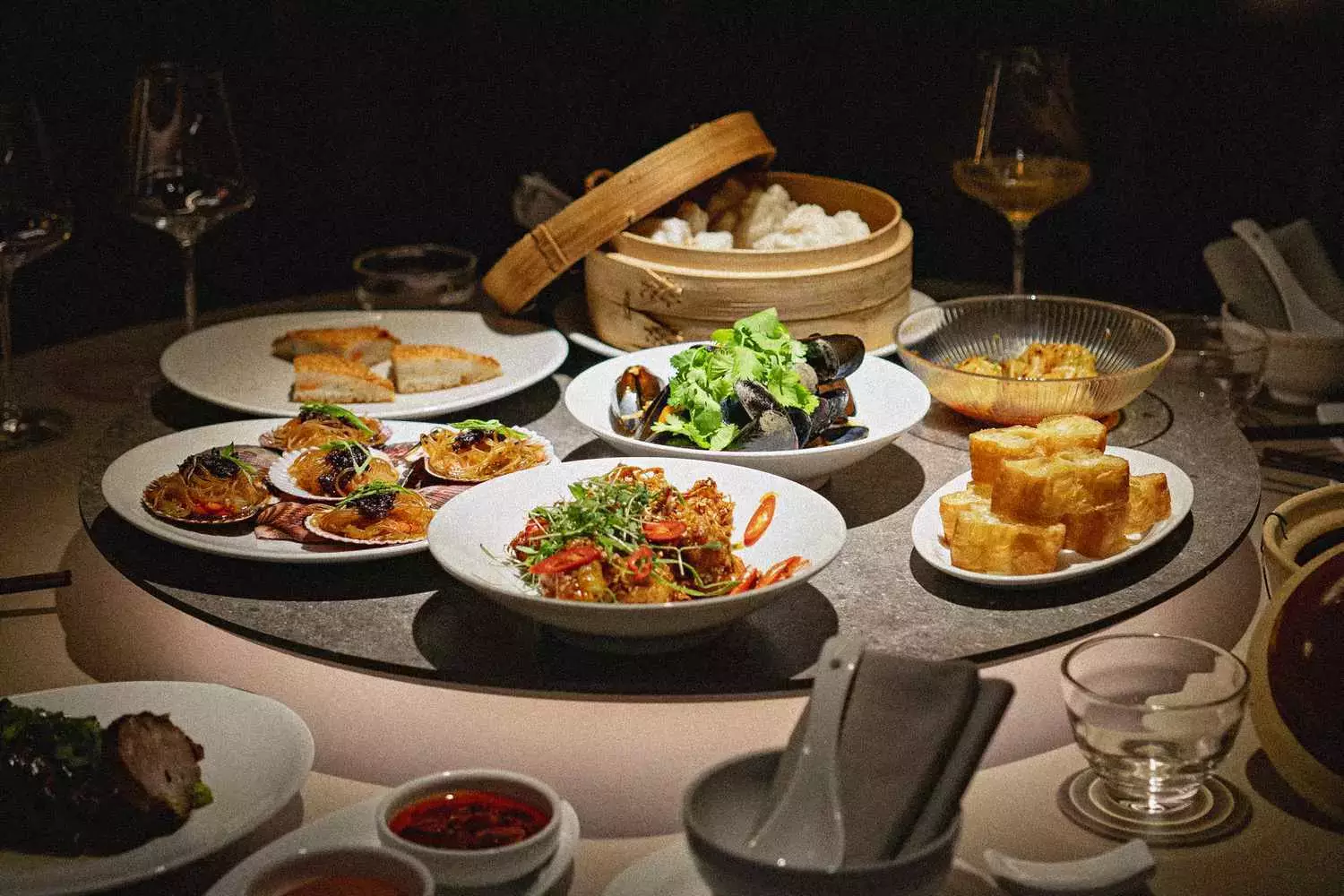In the heart of Copenhagen, a culinary renaissance is underway, blending the traditions of far-flung places into the city’s gastronomic landscape. A prime example is Goldfinch, an elevated Cantonese restaurant that stands out in a city synonymous with New Nordic cuisine. Encountering dishes such as scallop toasts, crispy shrimp, and pork wontons encapsulates a dining experience that transports patrons to the bustling streets of Hong Kong, albeit enriched with the distinct presence of Scandinavian aesthetics and linguistics.
Chef Will King-Smith, originally from Australia, along with his partner Megan Leung, has emerged as a vanguard of this movement. They identified a substantial gap in the dining scene, yearning for a diverse array of flavors that celebrated not only local produce but also international culinary traditions. This culinary backdrop isn’t just repetitively Nordic; it embraces influences from around the world, establishing a vibrant patchwork that reflects the city’s evolving palate.
The culinary trajectory of chefs in Copenhagen often follows a familiar path: training in prestigious kitchens like Noma and Geranium before striking out on their own. This journey is marked by rigorous experiences that shape their culinary philosophies. Many chefs, after acquiring invaluable skills, turn to their own heritages to cultivate fresh, innovative dining experiences.
Youra Kim’s Propaganda Kitchen and Wine serves as a beacon of this transformation. While trained in classic French techniques, Kim began to explore her Korean roots during her tenure at Noma when she prepared a Korean-style staff meal. The subsequent praise ignited her passion, leading to the creation of dishes that unapologetically celebrate Korean flavors while integrating Nordic ingredients. This synthesis highlights a growing trend among chefs in Copenhagen: a celebration of their cultural backgrounds, fostering an environment where diverse cuisines are not only accepted but highly sought after.
The narrative of culinary experimentation is echoed in other notable establishments throughout Copenhagen. At Gaijin, Edward Lee draws from his experiences at Jordnær to create a Japanese-inspired menu that emphasizes careful sourcing and mastery of preservation techniques inherent in Nordic cooking. His sashimi and seasonal yakitori are not mere renditions of traditional Japanese dishes; they are reflections of cultural interplay that draw diners into a multifaceted taste experience.
Jonathan Tam, who opened Jatak, merges Cantonese and Vietnamese flavors with Danish produce, illustrating the evolution of his culinary identity shaped by his past experiences. He emphasizes the importance of local ingredients in expressing the seasonal qualities of the dishes, making an indelible mark on the city’s gastronomic tapestry. This integration of different culinary traditions into high-end dining showcases how chefs are not just following trends but actively contributing to a larger narrative of culinary exploration.
Innovative Ingredients and Techniques
Kristian Baumann’s Koan takes this cultural amalgamation to another level. The restaurant’s tasting menu reflects both Danish and Korean influences, with dishes that incorporate nostalgic elements and innovative techniques. His playful take on traditional fare—transforming the Danish bread course into a Korean kkwabaegi—underscores the creative potential that lies at the intersection of culinary traditions.
Baumann embodies the essence of Copenhagen’s new gastronomic climate, where diners are encouraged to experience food as a fusion of cultures and stories. As he notes, Danish diners are eager to embrace novel experiences, prompting chefs to explore unknown territories that enrich the culinary landscape.
The Future of Copenhagen’s Dining Scene
As notable restaurants like Noma step back from traditional operations, there’s a palpable excitement in the air, heralding a new era marked by a kaleidoscope of culinary influences. This burgeoning movement in Copenhagen is characterized by openness to diverse inspirations, encouraging both chefs and diners to engage in culinary narratives that are constantly evolving.
The success of restaurants like Goldfinch, Propaganda Kitchen, Gaijin, and Jatak illustrates that the burgeoning tapestry of Copenhagen’s food scene is not merely a trend but a reflection of the city’s broader cultural shifts. As more chefs embark on this journey of exploration and self-discovery through food, the stage is set for Copenhagen to emerge as a global culinary beacon, showcasing the power of diversity on every plate. The eagerness for exploration breeds a culinary ethos that promises to captivate and inspire for years to come, redefining what it means to dine in this vibrant city.


Leave a Reply